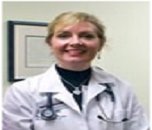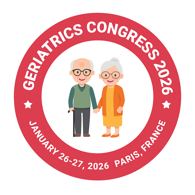Sessions and Tracks
Track 01. Healthy Aging and Longevity
Healthy aging focuses on strategies to preserve physical, cognitive, and emotional health throughout life. It explores interventions aimed at reducing age-related decline, enhancing resilience, and extending not only lifespan but also healthspan—the period of life spent in good health. Topics include nutrition and dietary supplementation, regular physical activity, mental stimulation, and stress management. Population studies identifying factors associated with longevity, including genetic predispositions, environmental influences, and lifestyle behaviors, are discussed. Public health initiatives, such as community-based programs and preventive healthcare strategies, are highlighted. The emphasis is on a holistic approach, combining preventive medicine, wellness programs, and lifestyle modifications to promote active and productive aging.
Track 02. Cognitive Health and Dementia Prevention
Cognitive decline, including dementia and Alzheimer’s disease, is a major challenge in geriatric care. This track examines the mechanisms of neurodegeneration, early detection strategies, and preventive measures. It highlights advances in neuroimaging, biomarkers, and cognitive assessment tools that enable early diagnosis. Interventions such as cognitive training, pharmacological therapy, and lifestyle modifications, including diet, exercise, and social engagement, are discussed. The role of mental stimulation, education, and community engagement in reducing cognitive decline is emphasized. Caregiver support, management of behavioral symptoms, and ethical considerations in dementia care are also addressed. Understanding cognitive health holistically provides insights into improving quality of life and functional independence for older adults.
Track 03. Geriatric Pharmacology and Polypharmacy Management
Older adults often take multiple medications for chronic conditions, increasing the risk of adverse drug reactions and drug interactions. This topic focuses on optimizing pharmacotherapy for the elderly, considering age-related changes in pharmacokinetics and pharmacodynamics. It covers deprescribing strategies, personalized medication regimens, medication adherence, and minimizing polypharmacy risks. The impact of comorbidities on drug metabolism and how to balance therapeutic benefits with safety is discussed. Case studies illustrate practical approaches to monitoring, adjusting doses, and preventing medication-related complications. Emerging tools and technologies to improve medication safety, including electronic prescribing, decision-support systems, and clinical guidelines for geriatric pharmacology, are also highlighted.
Track 04. Geriatric Nutrition and Metabolic Health
Nutrition plays a critical role in maintaining health, preventing disease, and managing chronic conditions in older adults. This topic explores age-specific nutritional requirements, including protein, vitamins, minerals, and caloric needs. It addresses the impact of diet on cardiovascular health, diabetes management, bone density, cognitive function, and immune response. Malnutrition, frailty, and sarcopenia are highlighted as major concerns, with strategies for early identification and intervention. Therapeutic diets, supplementation, and the role of functional foods in promoting metabolic health are discussed. Challenges in dietary adherence, including socioeconomic factors, accessibility, and sensory changes affecting appetite and taste, are also considered.
Track 05. Geriatric Cardiovascular Health
Cardiovascular diseases remain leading causes of morbidity and mortality in older adults. This topic addresses age-related changes in the heart and vascular system, risk factors, diagnostic tools, and preventive strategies. It covers hypertension, heart failure, coronary artery disease, arrhythmias, and stroke. Advances in geriatric cardiology, such as minimally invasive procedures, implantable devices, and personalized pharmacotherapy, are highlighted. Preventive interventions focusing on lifestyle modification, diet, physical activity, and early detection of cardiovascular risks are emphasized. Strategies for managing comorbidities and polypharmacy ensure safe and effective cardiovascular care tailored to the elderly population.
Track 06. Musculoskeletal Health and Mobility
Maintaining mobility and physical independence is crucial for quality of life in older adults. This topic explores the prevention and management of conditions such as osteoporosis, osteoarthritis, sarcopenia, and falls. Therapeutic interventions, including physiotherapy, exercise programs, pharmacological treatments, and surgical options, are discussed. Assistive devices, home modifications, and rehabilitation strategies help improve safety and mobility. Early detection methods, risk assessment tools, and lifestyle approaches to strengthen bones, muscles, and joints are highlighted. A multidisciplinary approach combining medical care, rehabilitation, and community support is essential to preserve functional independence.
Track 07. Geriatric Mental Health and Emotional Wellbeing
Mental health challenges, including depression, anxiety, and social isolation, are common among older adults and significantly affect quality of life. This topic explores screening methods, therapeutic interventions, and community-based support programs to address emotional wellbeing. Cognitive behavioral therapy, mindfulness techniques, and group counseling are examined as approaches to reduce psychological distress. Social engagement, intergenerational programs, and volunteer activities are emphasized as protective factors against loneliness and depression. Attention is also given to caregiver support and the development of strategies to maintain resilience, life satisfaction, and emotional stability in the aging population.
Track 08. Geriatric Endocrinology
Hormonal changes with aging impact metabolism, bone health, and overall physiological function. Geriatric Endocrinology focuses on common endocrine disorders in older adults, including diabetes, thyroid dysfunction, osteoporosis, and adrenal or pituitary imbalances. Approaches to diagnosis, management, and treatment are explored, with an emphasis on individualized care. The role of hormone replacement therapy, lifestyle modifications, and dietary adjustments are discussed to optimize endocrine function. Monitoring and managing complications, including metabolic syndrome and cardiovascular risks, are highlighted as critical components in improving health outcomes among the elderly.
Track 09. Preventive Geriatric Care and Screening
Preventive measures and regular health assessments are crucial for maintaining independence in older adults. Geriatric care and screening covers strategies such as vaccination, cancer screening, fall risk assessments, sensory evaluations, and comprehensive geriatric assessments. Emphasis is placed on early detection of chronic conditions, including cardiovascular disease, diabetes, and cognitive decline. Preventive care also involves patient education, lifestyle counseling, and risk reduction strategies. Incorporating preventive practices into routine care helps reduce hospitalizations, improve functional outcomes, and enhance overall quality of life.
Track 10. Technology and Digital Health in Aging
Advances in technology are transforming healthcare delivery for older adults. This topic explores telemedicine, wearable health monitors, smart home systems, and mobile applications designed to support aging populations. Remote monitoring of vital signs, medication adherence, and activity levels allows for proactive care and early intervention. Emerging artificial intelligence tools help predict health risks, support clinical decision-making, and enhance personalized care plans. Digital platforms for social interaction, cognitive training, and mental health support are also highlighted as ways to improve quality of life, independence, and connectivity for older adults.
Track 11. Palliative Care and End-of-Life Management
Providing compassionate care for older adults with advanced illnesses involves addressing physical, emotional, and spiritual needs. This topic focuses on symptom management, pain relief, and holistic approaches to end-of-life care. Strategies include communication with patients and families, advance care planning, and ethical decision-making. Approaches to manage chronic pain, fatigue, and psychological distress are discussed, along with hospice care models. Ensuring dignity, comfort, and quality of life for patients while supporting caregivers is emphasized as a cornerstone of geriatric care.
Track 12. Geriatric Rehabilitation and Functional Independence
Rehabilitation is essential for restoring functional abilities after illness, injury, or surgery. This topic explores physical therapy, occupational therapy, cognitive rehabilitation, and adaptive strategies to maintain independence. Interventions focus on improving strength, balance, coordination, and daily living skills. Assistive devices, mobility aids, and environmental modifications are highlighted to enhance safety and autonomy. Rehabilitation programs also address mental health, social engagement, and community reintegration, with the goal of preserving quality of life and reducing disability among older adults.
Track 13. Social Determinants of Aging and Geriatric Policy
Social, economic, and environmental factors significantly influence health outcomes in older adults. This topic examines access to healthcare, social support networks, elder abuse prevention, long-term care policies, and age-friendly community initiatives. The impact of income, education, housing, and transportation on aging populations is discussed. Advocacy for policy changes, community programs, and public health interventions that support equitable access to healthcare and promote social inclusion are emphasized. Participants gain insight into addressing disparities and improving overall wellbeing in aging populations.
Track 14. Neurodegenerative Diseases and Parkinson’s Management
Neurodegenerative disorders such as Parkinson’s disease, Alzheimer’s disease, and related movement disorders are a major concern in geriatrics. This topic covers underlying pathophysiology, early diagnostic methods, pharmacological and non-pharmacological treatments, and rehabilitative strategies. Support for caregivers, management of motor and non-motor symptoms, and quality-of-life interventions are highlighted. Innovative research in neuroprotection, disease-modifying therapies, and rehabilitation technologies are discussed to slow progression and maintain functional independence.
Track 15. Immunosenescence and Infection in Older Adults
Aging is associated with gradual decline in immune function, leading to increased susceptibility to infections. This topic explores age-related changes in the immune system, response to vaccines, and strategies to prevent and manage infections. Topics include respiratory infections, urinary tract infections, influenza, and emerging infectious diseases in older populations. Strategies for infection control, immunization programs, and individualized preventive care are emphasized to maintain health and reduce morbidity.
Track 16. Sleep Disorders in Aging
Sleep patterns often change with age, and sleep disturbances can negatively impact cognitive function, cardiovascular health, and emotional wellbeing. This topic examines insomnia, sleep apnea, restless leg syndrome, and circadian rhythm disturbances. Assessment techniques, therapeutic interventions, lifestyle modifications, and pharmacological approaches are discussed. The importance of sleep hygiene, environmental factors, and behavioral strategies to promote restorative sleep is highlighted as a crucial aspect of healthy aging.
Track 17. Geriatric Oncology
Cancer prevalence increases with age, requiring specialized approaches in older adults. This topic covers screening, diagnosis, treatment options, and supportive care tailored for elderly patients. Challenges such as comorbidities, frailty, and tolerability of chemotherapy and radiation therapy are discussed. Holistic management including pain control, psychological support, and rehabilitation strategies ensures improved outcomes and quality of life. Advances in personalized oncology and targeted therapies for aging.
Track 18. Oral Health and Aging
Oral health significantly affects nutrition, systemic disease, and overall wellbeing. This topic addresses common age-related oral conditions such as periodontal disease, tooth loss, and dry mouth. Preventive care strategies, dental interventions, and rehabilitative approaches including dentures and implants are discussed. The link between oral health and systemic conditions such as diabetes, cardiovascular disease, and cognitive decline is emphasized, highlighting the importance of integrated care in geriatrics.
Track 19. Sensory Impairments: Vision and Hearing
Vision and hearing decline are common with aging and can significantly impact independence and quality of life. This topic covers age-related macular degeneration, glaucoma, cataracts, presbycusis, and hearing loss. Assessment techniques, medical and surgical treatments, assistive technologies, and rehabilitation approaches are discussed. Early detection, adaptive strategies, and integration of sensory aids help maintain functional independence and social engagement in older adults.
Track 20. Ethical Considerations in Geriatric Care
Ethical challenges are central to caring for older adults. This topic explores autonomy, informed consent, capacity assessments, resource allocation, and decision-making at the end of life. Ethical dilemmas related to treatment refusal, life-prolonging interventions, and balancing patient-centered care with clinical recommendations are discussed. Guidance on communication, family involvement, and establishing advanced care plans is provided to ensure dignity, respect, and ethical integrity in geriatric care.
Market Analysis Report
The global geriatric care market is experiencing rapid growth, driven by a significant rise in the aging population worldwide. According to the World Health Organization, the number of people aged 60 years and older is projected to reach over 2 billion by 2050, nearly doubling from 1 billion in 2020. This demographic shift presents both challenges and opportunities across healthcare systems, technology, pharmaceuticals, and policy frameworks.
The global elderly care market size was valued at approximately USD 1 trillion in 2023 and is expected to grow at a compound annual growth rate (CAGR) of around 7–8% from 2024 to 2030. Key growth factors include increasing life expectancy, rising prevalence of age-related diseases (such as Alzheimer’s, arthritis, and cardiovascular disorders), and growing awareness of senior care quality.
Technological innovations such as telemedicine, remote patient monitoring, wearable health devices, and artificial intelligence solutions are transforming the way elderly care is delivered, enabling better disease management, improved patient engagement, and reduced healthcare costs.
Pharmaceutical advancements in geriatric therapeutics, including novel treatments for cognitive decline, osteoporosis, and chronic disease management, are creating new market segments and improving patient outcomes.
In parallel, governments worldwide are focusing on creating robust geriatric healthcare policies, increasing funding, and promoting age-friendly infrastructure to support the aging population.
However, the sector faces challenges such as a shortage of skilled geriatric care professionals, high treatment costs, and regulatory complexities. These challenges create a growing need for interdisciplinary collaboration, knowledge-sharing platforms, and innovative solutions.
The 3rd Global Summit on Geriatrics & Aging – Geriatrics Congress 2026 serves as a crucial forum for industry leaders, healthcare professionals, researchers, and policymakers to explore solutions, share insights, and foster collaborations that will shape the future of geriatric care worldwide.
-
Earn CPD credits to support continued professional development



























